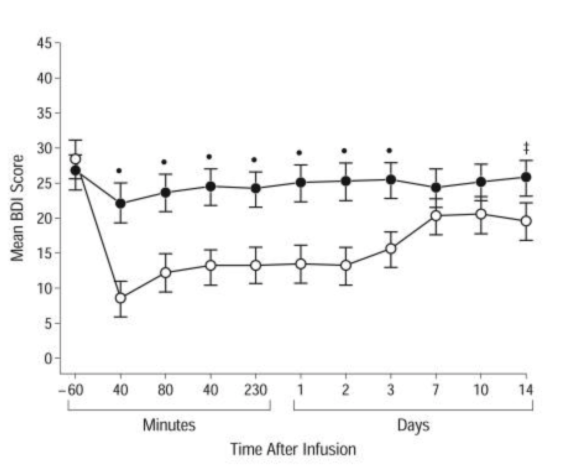Ketamine was discovered in the 1970’s as an anesthetic used in emergency care. It’s anesthetic properties produce sedation and pain relief and is very safe because it does not cause respiratory depression like many anesthetics. But, it wasn’t until the last decade that ketamine treatment for bipolar disorder was researched.
Here’s why this is relevant to you…
Ketamine can have an immediate effect on certain depression symptoms, such as suicidal thinking, sadness and loss of interest in daily activities. Clinical trials have repeatedly shown that suicidal thinking can go away within just one treatment of ketamine [1], which many individuals with bipolar disorder suffer from. In addition, ketamine does not have long-term side effects that come hand-in-hand with many bipolar medications.
Ketamine boosts Brain-Derived Neurotrophic Factor (BDNF)[2] which is an important brain hormone that appears to help reverse the loss of connectivity between neurons caused by chronic mental illness. Ketamine also blocks receptors for glutamate[2], a neurotransmitter associated with mania and brain excitotoxicity. All of these mechanisms are theorized to play a significant role in the rapid mood benefits of ketamine.
